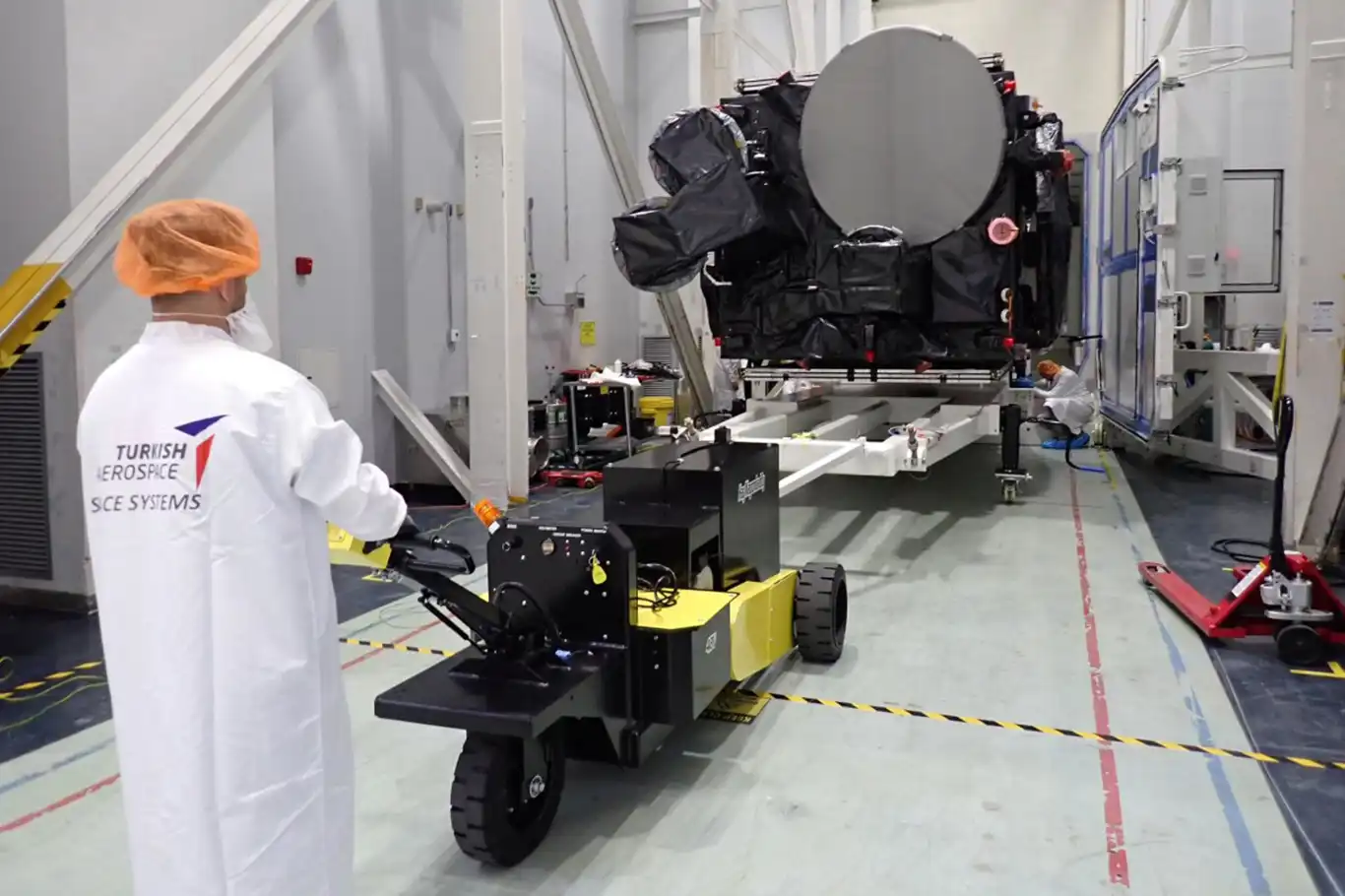Turksat 6A satellite undergoes final tests at Cape Canaveral


Türkiye's Minister of Transport and Infrastructure, Abdulkadir Uraloğlu, announced that the final tests of the Turksat 6A satellite are currently being conducted at Cape Canaveral Space Force Station.
The satellite departed from Türkiye on the night of June 4, transported by an Antonov An-124 aircraft, and arrived in Florida after a 19-hour journey.
Uraloğlu confirmed that the Turksat-6A Satellite Project is on track and highlighted the meticulous monitoring of the satellite's activities by the Ministry, project stakeholders, and relevant institutions. According to the project schedule, the Turksat 6A is set to be launched into space aboard SpaceX's Falcon 9 rocket in the second week of July.
The Turksat-6A satellite, which successfully completed nearly 400 environmental and functional tests during its production process, is undergoing post-travel tests in SpaceX's hangar at Cape Canaveral. After these tests, the satellite will embark on a 10-day journey to its designated orbit, followed by orbital tests to ensure its functionality.
Uraloğlu emphasized the significant expansion in coverage area and capacity that the Turksat 6A satellite will bring. Once operational, the satellite will extend the reach of Turksat’s services to India, Thailand, Malaysia, and Indonesia, increasing the population coverage from 3.5 billion to over 5 billion people. This expansion will enable Türkiye to reach more than 65 percent of the world's population with its communication satellites.
With a power capacity of 7.2 kW, the Turksat 6A satellite is expected to provide service for 15 years. It will serve the broadcasting sector with its Ku Band capacity, enhancing Turkey's satellite communication capabilities.
The successful launch and operation of the Turksat 6A satellite will mark a significant milestone in Türkiye’s space and communication technology sector, reinforcing its position in the global satellite industry. (TILKHA)
LEGAL WARNING: All rights of the published news, photos and videos are reserved by İlke Haber Ajansı Basın Yayın San. Trade A.Ş. Under no circumstances can all or part of the news, photos and videos be used without a written contract or subscription.
WhatsApp has introduced a significant policy update to its Business Solution Terms, effectively barring artificial intelligence (AI) companies from using its platform for developing or training AI technologies, including large language models, generative AI systems, and digital assistants.
Researchers at the University of California, Berkeley, in collaboration with Ajou University and the Georgia Institute of Technology, have developed a self-balancing miniature robot inspired by a species of water strider, potentially transforming search-and-rescue operations and environmental monitoring.
OpenAI is facing sharp criticism from across the artificial intelligence and academic communities after claims that its GPT-5 model had “solved” ten of Paul Erdős’s famous unsolved mathematical problems were exposed as inaccurate.
Chinese aerospace company LandSpace marked a significant milestone in its quest to develop a reusable rocket, successfully conducting a static-fire test of its Zhuque-3 launcher on Monday, October 20.